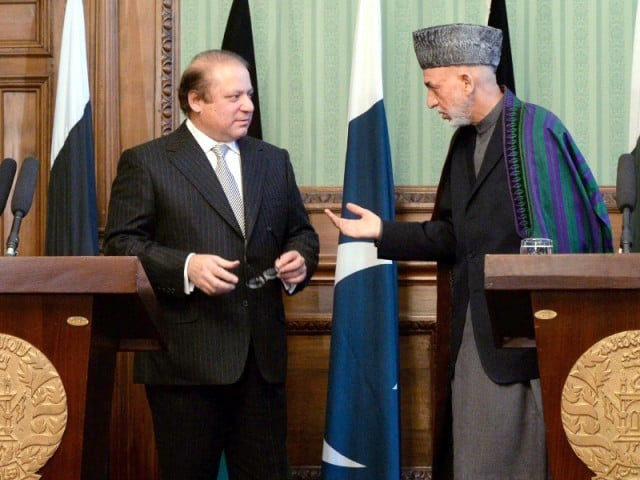Assuring Afghanistan
The question now to ask is whether this is an end to the blame game from both sides.

President Hamid Karzai speaks with Prime Minister Nawaz Sharif at the Presidential Palace in Kabul. PHOTO: AFP/FILE
While Pakistan has freed a number of top Taliban leaders recently, trying to prove its sincerity to the cause of peace, Mullah Baradar — one of the top Taliban leaders whose release has been the cause of much speculation — once again featured in the statements of both leaders. While PM Sharif promised to help the delegation meet the Taliban leader, the statement issued by President Karzai’s office after the meeting for the “full release” of Baradar points to the fact that there is much to be discussed and assured. A question that now needs to be answered is: who controls the foreign policy?
While President Karzai’s long walks in the hills of Margalla are suggestive in their own way about how much both countries have in common and how important it is for peace to prevail, this is not the first time that such linguistic gestures have been made. Pakistan is apprehensive about the consequences once the Nato forces withdraw. Alarm bells have rung as the Taliban and other warring factions in Afghanistan say that any settlement which allows foreign troops to have a permanent basis in the country will be unacceptable. It remains to be seen if there will be a major shift in Pakistan’s Afghan Policy. It must be noted, however, that such meetings usually vary from ground realities.
Published in The Express Tribune, December 5th, 2013.
Like Opinion & Editorial on Facebook, follow @ETOpEd on Twitter to receive all updates on all our daily pieces.














COMMENTS
Comments are moderated and generally will be posted if they are on-topic and not abusive.
For more information, please see our Comments FAQ